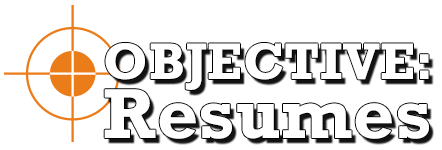
“Ask not what your country can do for you; ask what you can do for your country.”
Calculated to generate insight leading to tangible contributions, President John F. Kennedy issued this edict to American citizens more than forty-five years ago. Although he was urging the general public to impact positively the community on local, state, and national levels, his directive can be applied successfully in one’s job search and most dynamically, on interviews.
With the economy continuing to plummet, desperation rises among the unemployed. In a state of anxiety, job hunters enter interviews concerned about what the company is going to do for them in terms of salary, benefits, career growth, and perhaps more importantly, at this stage, job stability. While these constitute valid concerns, many job candidates fail to understand the company’s position. Every employer seeks new talent that will, one way or another, improve the bottom line — either directly or indirectly.  Consequently, during interviews, managers will weigh the value of potential employees in terms of their profit-generating, efficiency-improvement, or cost-reduction potential. They must arrive at the conclusion that the prospective employee’s contributions will be greater than the company’s investment, salary-wise.
A well-crafted resume speaks of one’s past accomplishments: of initiative, critical thinking skills, goal-setting, and problem solving. Hiring managers will, of course, be interested in prior achievements, but the interview will be driven based upon perceptions of how the candidate will actually perform in the position. Therefore, in competing among a large group of aspiring employees, it is advisable to conduct a bit of research on the company to determine its objectives, products or services, and the issues it is encountering in fulfilling its mission. Once you have compiled this data, analyze these elements against your own strengths and devise a proposal as to how you intend to apply your proficiencies in assisting the corporation in meeting its goals.  Use your proposal to engineer the interview to your advantage, by stating what you can do for the employer.
Without understanding the full scope of the issues, you can only provide general suggestions. But, your suggestions should generate a very meaningful dialogue between you and the employer, thus furnishing you with further opportunities to demonstrate, via the interview, what you can bring to the table. You will walk away from the interview as a truly viable candidate who cares about the company’s goals and who has given thought to how you might best fulfill those requirements.
Similar Articles interviewing
- Thanking the Prospective Employer - March 5th, 2010
- Interviewee, Beware - February 5th, 2010
- The Consultant's Interview - December 30th, 2009
- Put Your Best Voice Forward: 10 Tips for Telephone Interviews - November 18th, 2009
- Interview Monkey Wrenches - November 6th, 2009

[…] the same. If you can connect your abilities with similar feats, you will have identified your accomplishments for potential employers.Resumes for writers can be broken down into a number of categories, […]